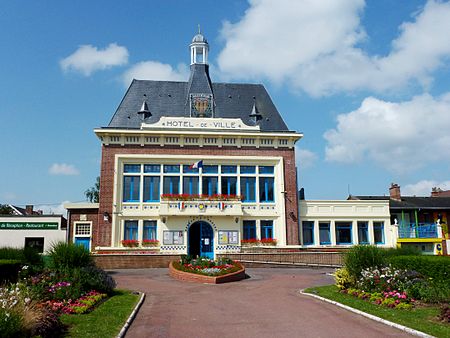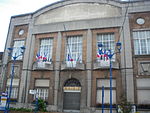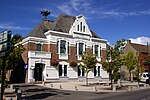The Gas Attacks at Hulluch were two German cloud gas attacks on British troops during World War I, from 27 to 29 April 1916, near the village of Hulluch, 1 mi (1.6 km) north of Loos in northern France. The gas attacks were part of an engagement between divisions of the II Royal Bavarian Corps and divisions of the British I Corps.
Just before dawn on 27 April, the 16th (Irish) Division and part of the 15th (Scottish) Division were subjected to a cloud gas attack near Hulluch. The gas cloud and artillery bombardment were followed by raiding parties, which made temporary lodgements in the British lines. Two days later the Germans began another gas attack but the wind turned and blew the gas back over the German lines. A large number of German casualties were caused by the change in the wind direction and the decision to go ahead despite protests by local officers. German casualties were increased by the British, who fired on German soldiers as they fled in the open.
The gas used by the German troops at Hulluch was a mixture of chlorine and phosgene, which had first been used on 19 December 1915 at Wieltje, near Ypres. The German gas was of sufficient concentration to penetrate the British PH gas helmets and the 16th (Irish) Division was unjustly blamed for poor gas discipline. It was put out that the gas helmets of the division were of inferior manufacture, to allay doubts as to the effectiveness of the helmet. Production of the Small Box Respirator, which had worked well during the attack, was accelerated.












